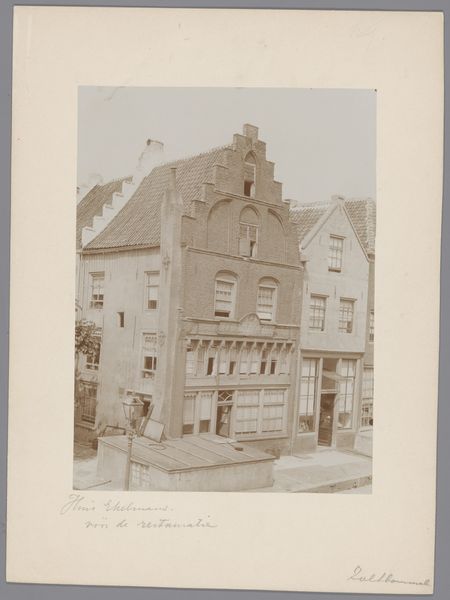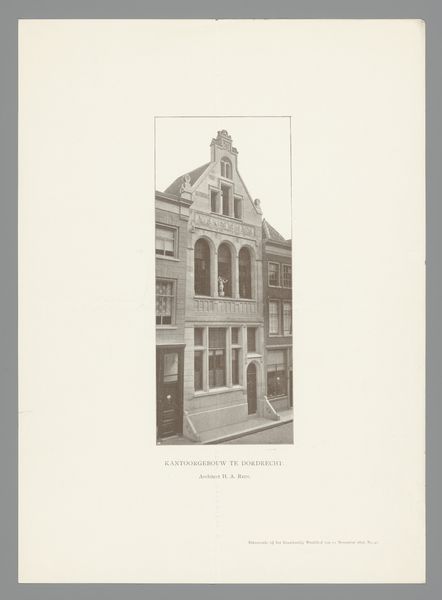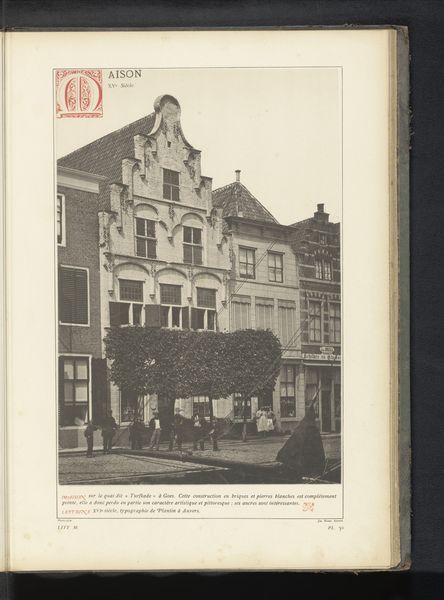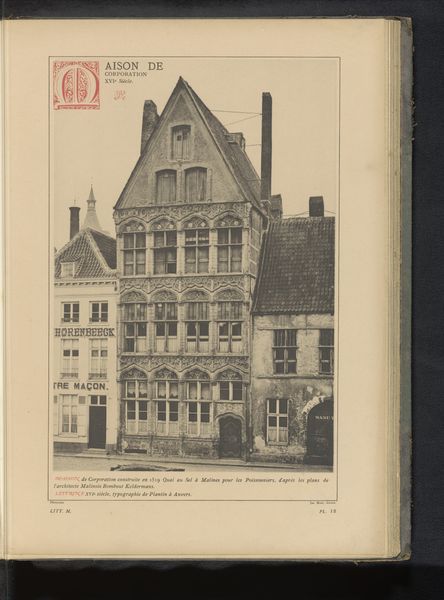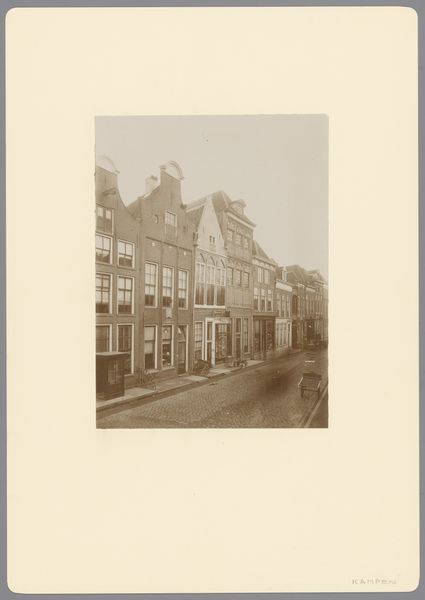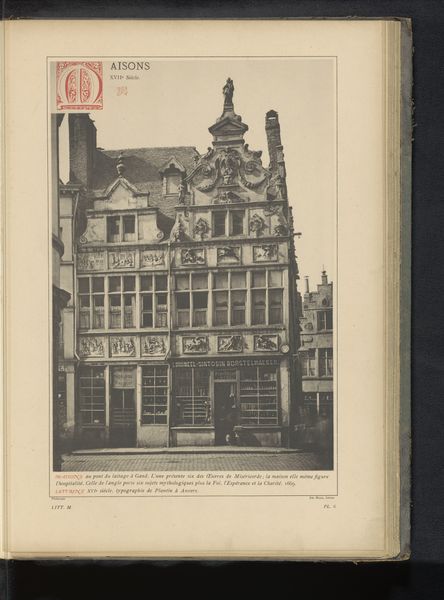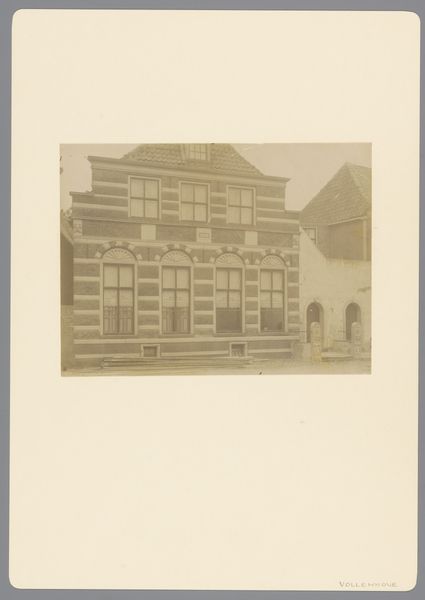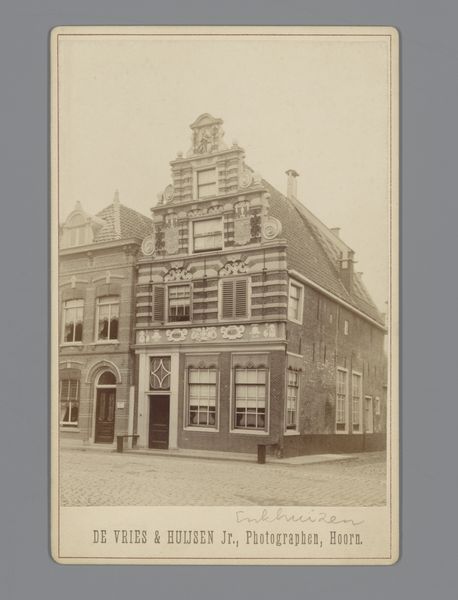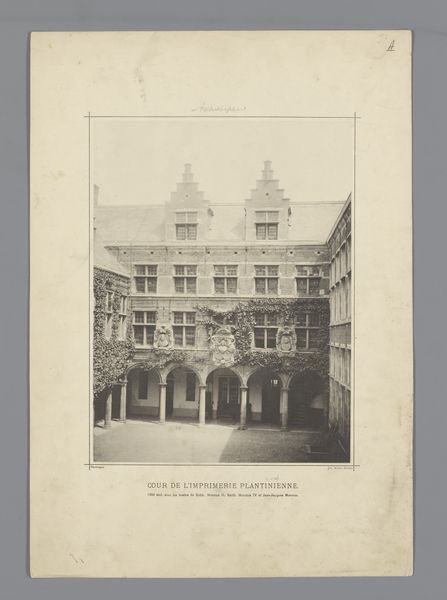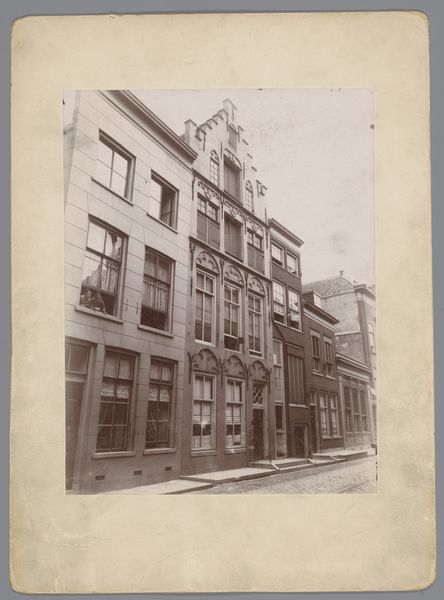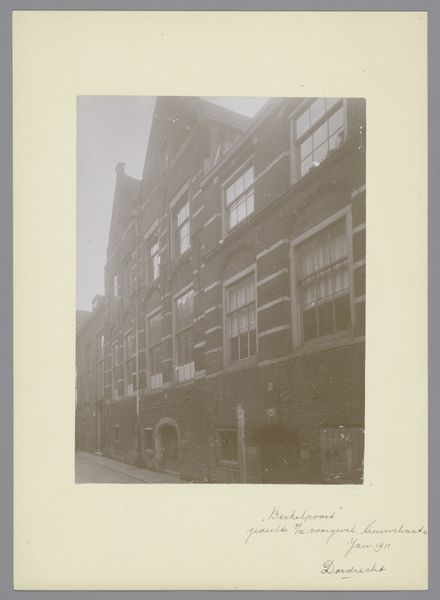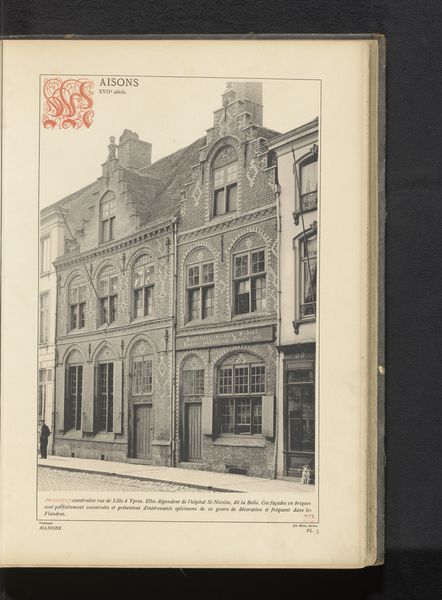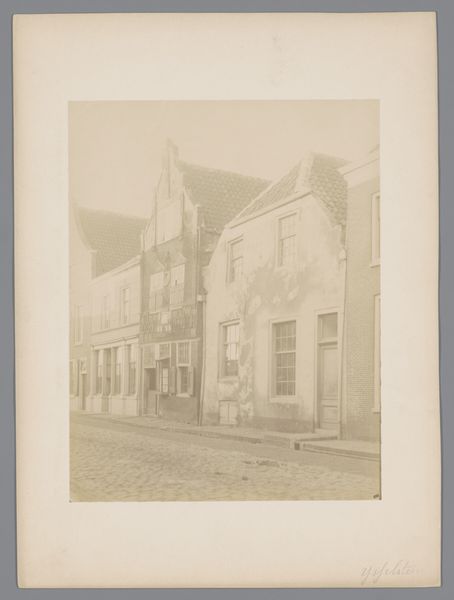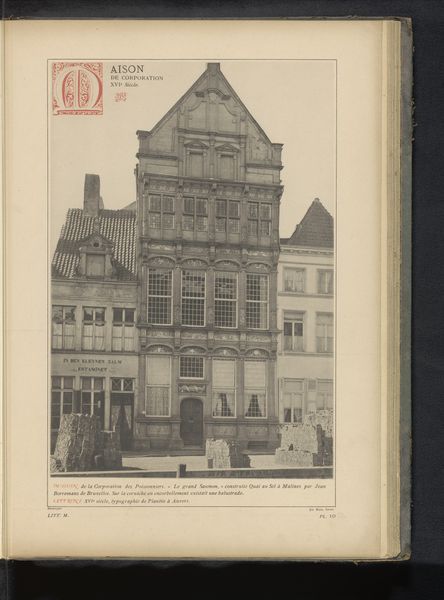
print, photography, architecture
# print
#
photography
#
cityscape
#
architecture
Dimensions: height 180 mm, width 130 mm, height 300 mm, width 250 mm
Copyright: Rijks Museum: Open Domain
Editor: This is a fascinating black and white photograph titled "Gent. Kleine Vismarkt," dating roughly from 1880 to 1930. It depicts a street corner with striking architectural details. It feels very…still. What do you see when you look at this work? Curator: I see a moment frozen in time, but more than that, I see the echoes of economic and social structures embedded in the architecture itself. Notice how the elaborate facades contrast with the somewhat gritty street scene. What stories might these buildings tell about class and commerce at the turn of the century? Editor: That's a great point! The detail in the buildings suggests wealth, but the empty street feels almost desolate. Were photographs like these ever used for urban planning? Curator: Absolutely. Think of photography's role as both a document and an agent of power. Images like this could be used to romanticize a particular urban identity but also to justify policies of urban renewal, often displacing marginalized communities. How do you think this image participates in the construction of a "desirable" past? Editor: So, it’s not just a snapshot of a street; it's a statement about who belongs and who gets to define the narrative? It does feel romanticized, in a way that almost glosses over the day-to-day realities of life back then. Curator: Precisely. By examining whose stories are centered, or conspicuously absent, we can begin to unravel the complex power dynamics at play. This photograph allows us to think critically about the intersection of history, architecture, and representation. Editor: I never considered it in that light before, it's made me look at it completely differently now, thank you. Curator: You're very welcome! This really highlights how art challenges and reshapes our understanding of the world.
Comments
No comments
Be the first to comment and join the conversation on the ultimate creative platform.
